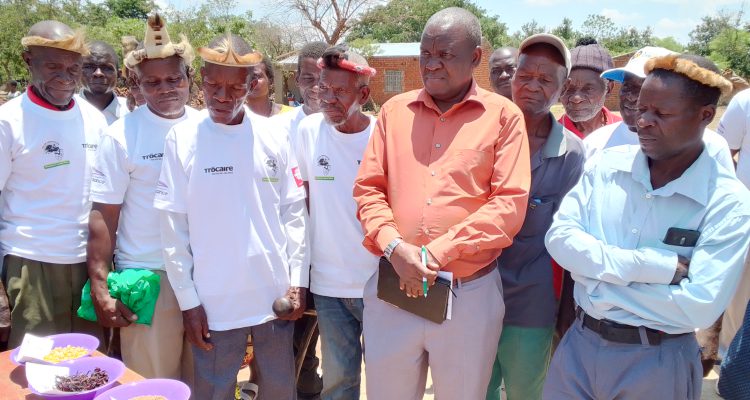
Agricultural experts have encouraged farmers in the country to grow local varieties of seeds in the wake of climatic stresses.
The call was made on Friday during a seed and food fair held in Balaka District.
Catholic Development Commission (CADECOM) project coordinator for Balaka District, under Mangochi Diocese, Tapiwa Machinjiri Gama, emphasized that local varieties of seeds have the potential to bolster agricultural productivity, especially in the era of climatic changes.
“We are advocating for the adoption and growth of local seed varieties because research has shown that these varieties are resilient to dry spells and other climatic shocks.
“For instance, we found out that during the last growing season, farmers who planted local varieties of seeds had better yields in the wake of the El-ninõ weather phenomenon, which affected the country,” said Gama.
Concurring with her, Nozgenji Bilima, country coordinator for Participatory Ecological Land Use Management (PELUM) expressed the competitive advantage of indigenous local seed varieties over hybrid varieties.
“Hybrid seeds require more inputs to thrive. But in the case of indigenous seed varieties, there is input reduction,” said Bilima.
She further said local seed varieties are a sustainable and comprehensive resource to deal away with Malawi’s worsening hunger crisis, which year in and year out leaves millions in dire need of food shortages.
She, therefore, implored the farmers to utilize available local seed varieties existing in their localities to avert the risk of uncertainties.
In his remarks, the Director of Agriculture Services in Balaka District, David Ali, said neglected seeds have many advantages, including high nutritional value, which is ideal for healthy living.
Cadecom is implementing a five-year-long Irish Aid Civil society program in the district, with financial support from Irish Aid and Trōcaire, with emphasis on encouraging people to adopt agro-ecological approaches at household and national levels to enhance the livelihoods of marginalized households and enable them to have sustainable lives including diverse food sources and economic well-being.
The fare was jointly held with other program implementing partners such as the Churches Action in Relief and Development (CARD) and PELUM.














